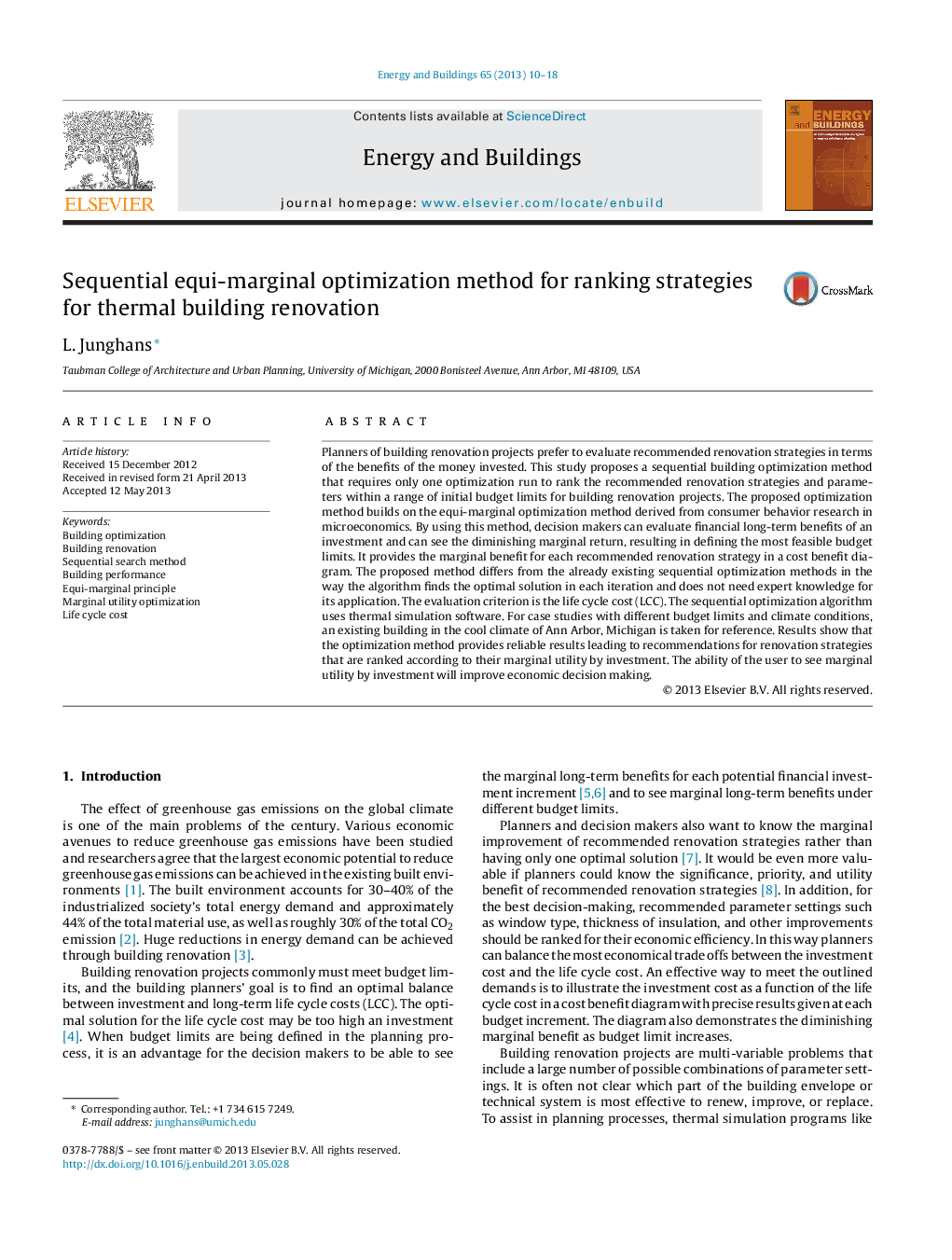| Article ID | Journal | Published Year | Pages | File Type |
|---|---|---|---|---|
| 263184 | Energy and Buildings | 2013 | 9 Pages |
•Introduction of equi-marginal optimization (EO) for building renovation.•EO ranks recommend methods according to its marginal benefit in reducing the LCC.•The EO provides reliable recommendations for building at various budget limits.•EO provides better solutions at smaller budgets than other sequential methods.•The advantage of EO is that planners can evaluate the reduction in LCC of each step.
Planners of building renovation projects prefer to evaluate recommended renovation strategies in terms of the benefits of the money invested. This study proposes a sequential building optimization method that requires only one optimization run to rank the recommended renovation strategies and parameters within a range of initial budget limits for building renovation projects. The proposed optimization method builds on the equi-marginal optimization method derived from consumer behavior research in microeconomics. By using this method, decision makers can evaluate financial long-term benefits of an investment and can see the diminishing marginal return, resulting in defining the most feasible budget limits. It provides the marginal benefit for each recommended renovation strategy in a cost benefit diagram. The proposed method differs from the already existing sequential optimization methods in the way the algorithm finds the optimal solution in each iteration and does not need expert knowledge for its application. The evaluation criterion is the life cycle cost (LCC). The sequential optimization algorithm uses thermal simulation software. For case studies with different budget limits and climate conditions, an existing building in the cool climate of Ann Arbor, Michigan is taken for reference. Results show that the optimization method provides reliable results leading to recommendations for renovation strategies that are ranked according to their marginal utility by investment. The ability of the user to see marginal utility by investment will improve economic decision making.
